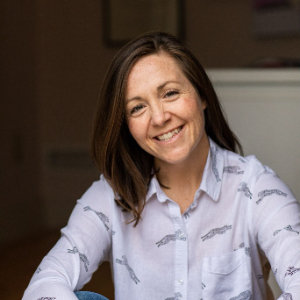
Categorizing Humans
We love to categorize people right from the start. I am not only referring to the categories we are all too familiar with, but as soon as we are born, people start saying things like; “Oh, they look just like their mom”, or “they are just like their dad.” All of these categories make it that much harder to discover who we are as individuals, and we are born individuals. What if we started life by noticing how unique and special each person is? Rather than looking for similarities. This week we explore how this mind shift could nurture self-awareness right from the start.
Categorizing Humans
We are all pretty special. We are all individuals, not like anyone else. Of course, we share similar traits and features, and these connections can be very special. When we are young, we tend to attach to these similarities and allow them to shape our identities, in a way detaching from our authentic selves. And when we become teenagers, all we want is to be seen as an individual, not an extension of someone else or even a whole group of people.
Categories can be harmful. As we start to grow, if we don’t feel like we belong in the category that was chosen for us, we might feel isolated, and low self-esteem starts to develop. And if we are parents or caregivers, it can be hard to see our children as individuals rather than an extension of us. This is really hard when our kids have big reactions or emotional outbursts and we feel judged or like it is our fault that this is happening when in actuality it’s just an emotional experience!
This same scenario can happen with teachers, you might feel judged or expected to have your students behave a certain way because ultimately it is a reflection of you. I encourage you to notice these as thoughts, NOT FACTS, and remember that you are doing an incredible job. Prioritize that connection when things feel chaotic, and ignore the noise in your head.
We also end up comparing ourselves to other people in our respective categories, rather than focusing on loving ourselves for all that we are. We end up judging ourselves for all that we are not and comparing who we are to everyone else. This is damaging for everyone because it generates judgment, rather than acceptance.
What I am proposing requires a cultural shift. A mind shift. If we want to build more inclusive communities and an inner sense of belonging, we need to start life by seeing each baby as a special individual. By noticing what is unique about them first, rather than what is the same. I believe that this mind shift could potentially change the way our society isolates us, or we isolate ourselves from society. I believe this could help all people feel a deeper sense of belonging and acceptance. I believe this could help people move through the world with their strengths and gifts at the forefront.


